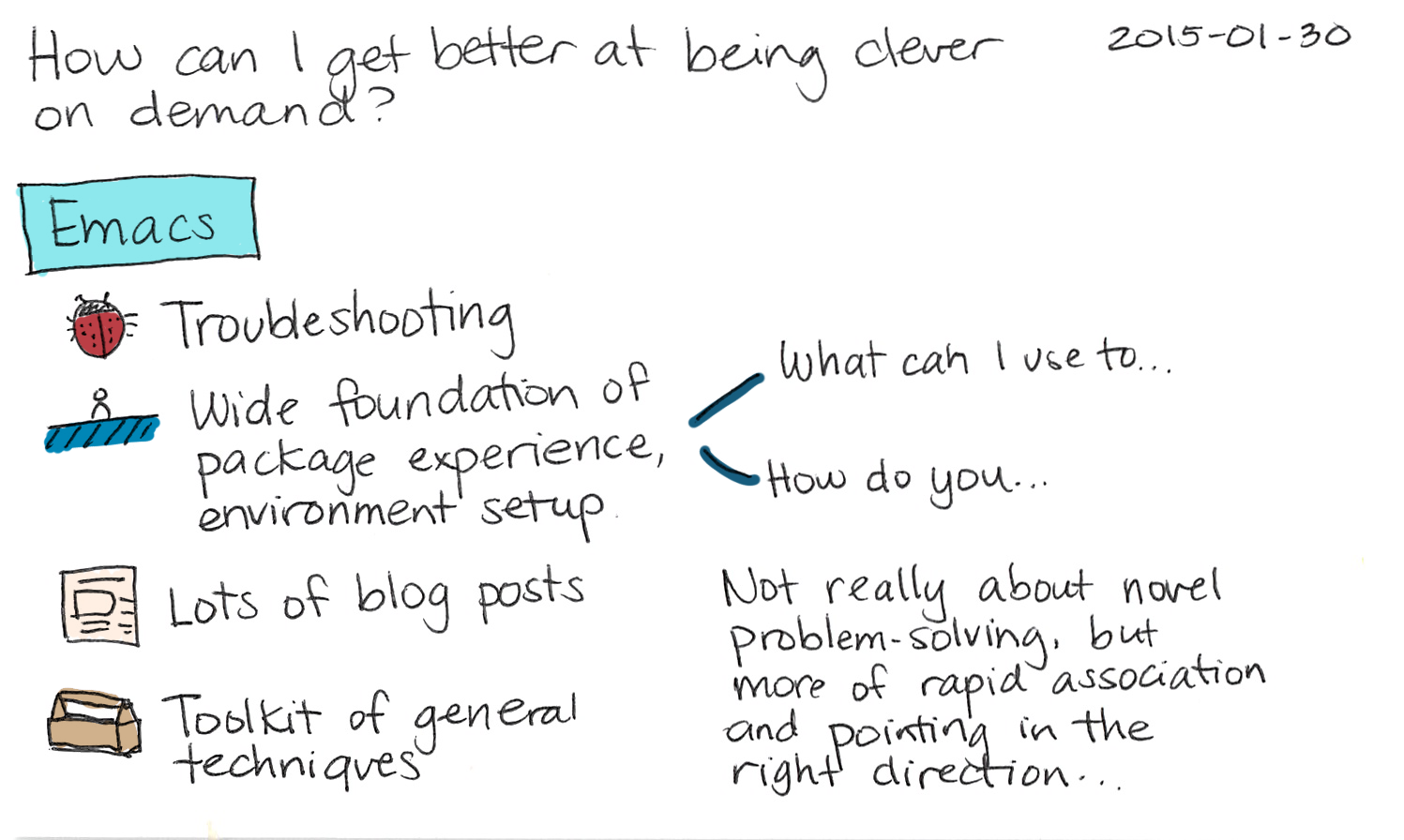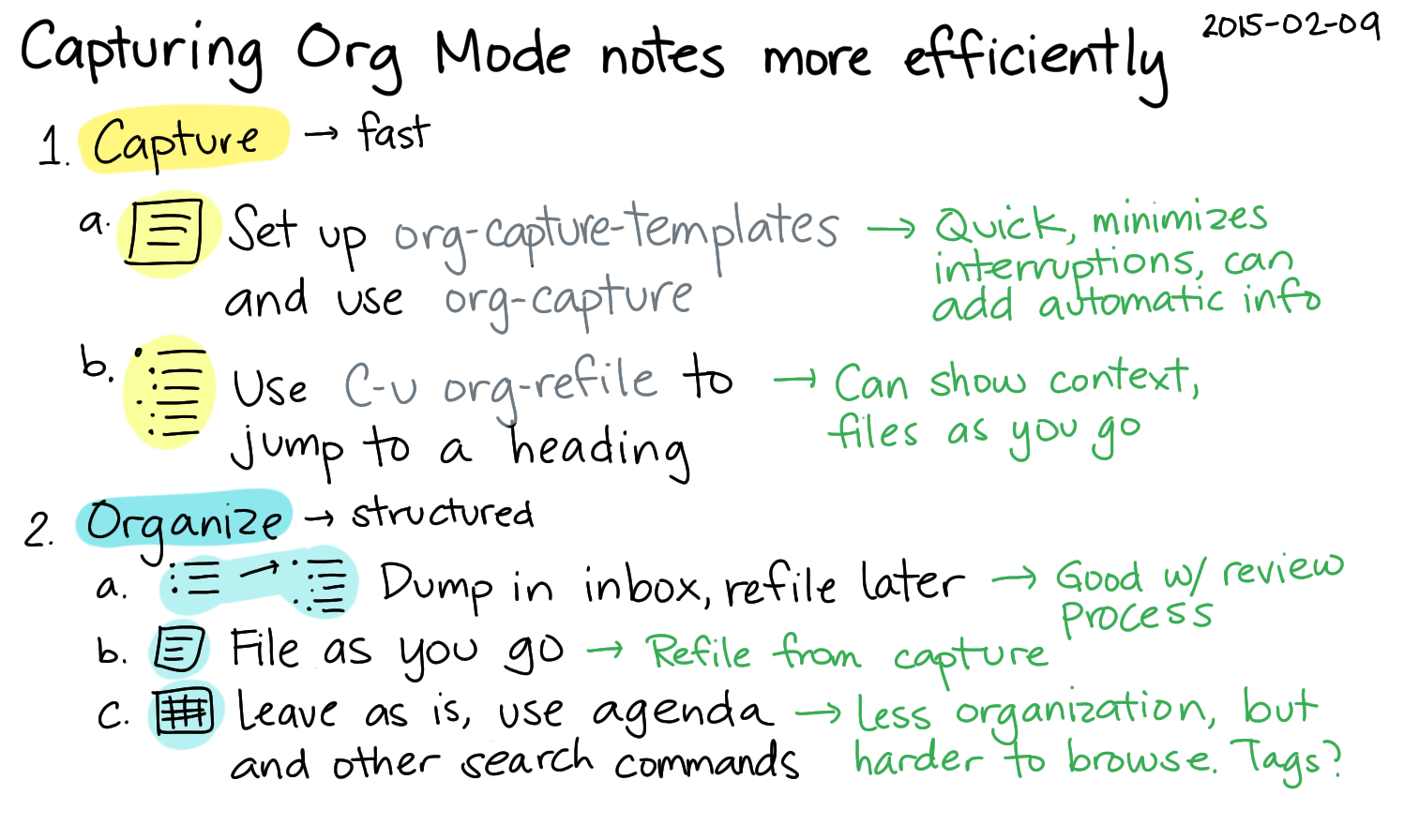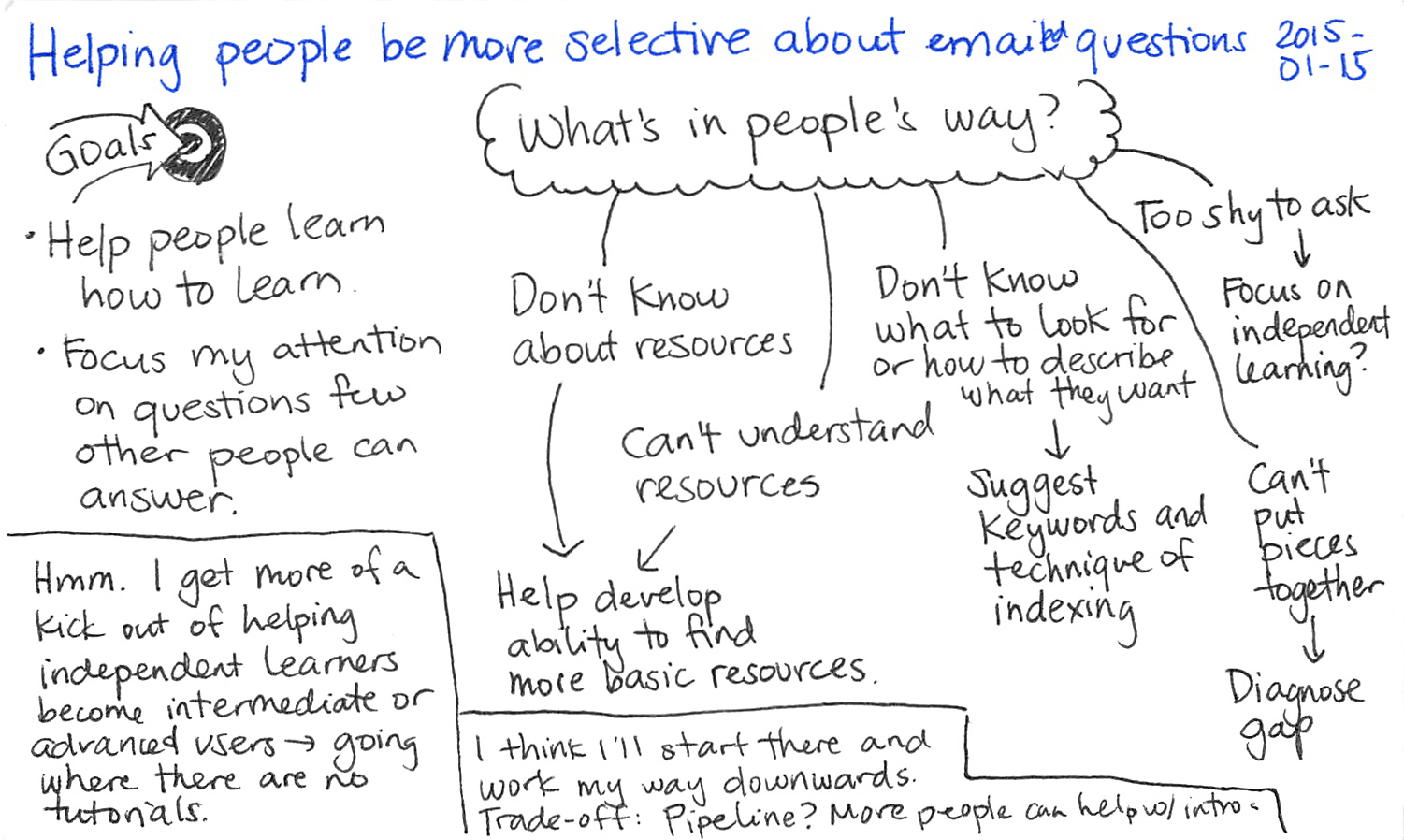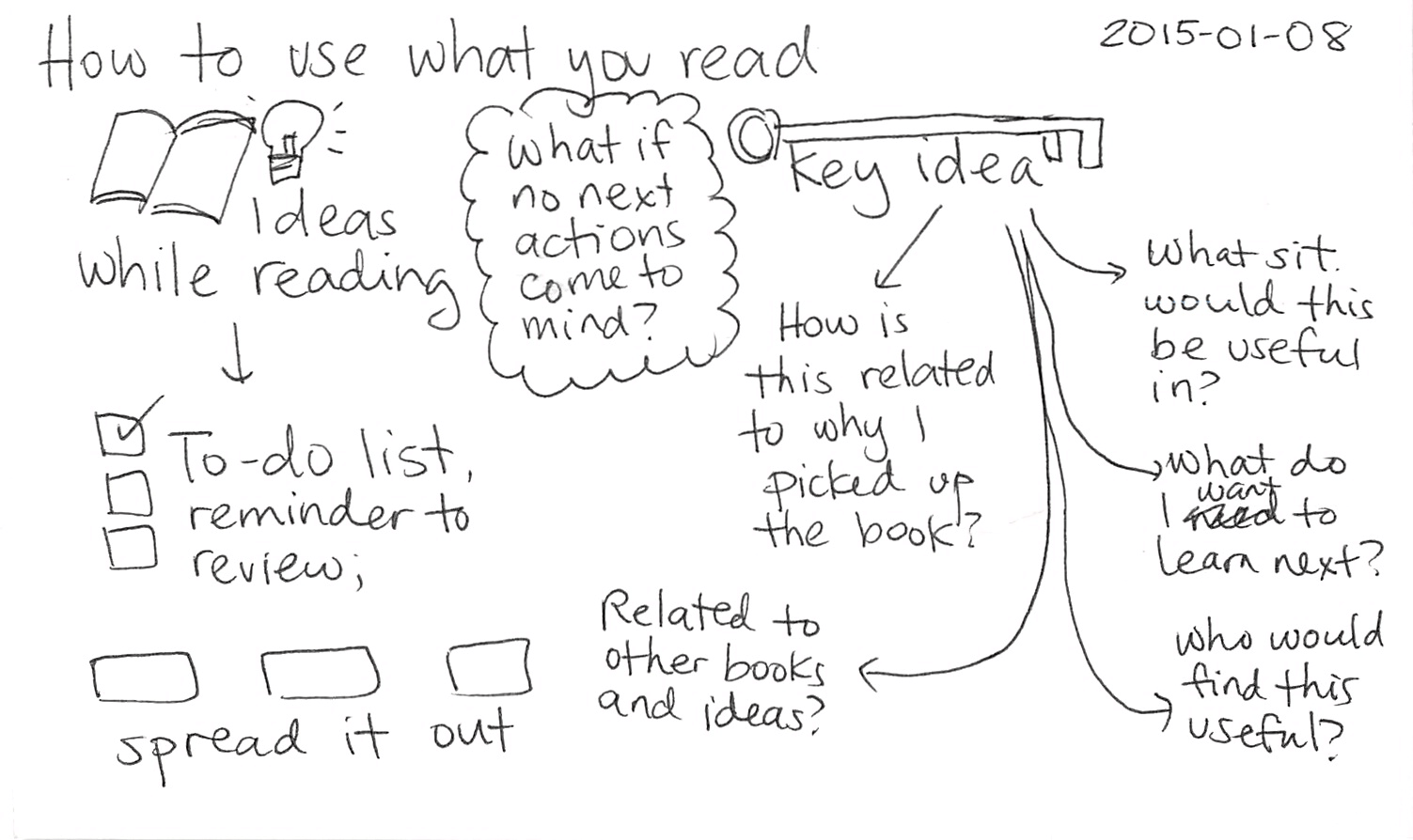Thinking about when I enjoy helping people
Posted: - Modified: | teachingSometimes I love helping people, and sometimes I feel hints of stress. I'm a good fit for some questions or approaches, and I'm not for others. What's the difference, and how can I tilt it towards positive experiences more than negative ones? Let's look at the negative side first, since that often gives strong clues.
I tend to feel a little bit of an impostor syndrome around coaching, because I doubt my ability to be clever on demand. In terms of Emacs, I'm not a good substitute for Stack Overflow, mailing lists, or newsgroups. I'm not going to teach the One True Way of doing things. In terms of drawing, I'm not a visual thesaurus.
But I shouldn't let this get in my way, since people don't expect me to be those things. (And if they do, that's under their control, not mine.) Instead, I can focus on the fact that people are often looking for a discussion of workflow options with some ideas, and that they're going to translate those thoughts into something applicable to their situation anyway.
I also feel a bit of friction when we start from a negative position ("This sucks", "I'm frustrated", etc.) instead of a positive one ("I've figured some stuff out", "I'm looking forward to learning this", etc.). I can filter it out when I pay attention, but it feels easier to build up something positive than to shore up something that's sloping downwards.
I think part of it is the difficulty of distinguishing these situations:
- someone who isn't ready to change, but who wants to vent
- someone who wants to change, but who's frustrated at being stuck
- someone who's uncomfortable with being a beginner (still attached to the feeling of competence?)
Actually, the first situation can be identified by focusing on action. The third situation is a matter of mindset and patience. For the second situation, how can you tell the difference between something that will eventually become a good fit after practice and learning, and something that just doesn't jive with what someone wants? Hmm. I think this is why I like focusing on building a tiny beachhead of happy competence first, because it's frustrating to deal with the feeling of constantly running into walls.
On my side, it's not fun to only see the parts where someone bumping into walls. I feel much better when people share their triumphs and excitement, too, instead of just presenting me with the next thing that annoys them. It's like the criticism sandwich. I want to hear about stuff people like, not just stuff that needs to be fixed. In fact, I prefer it even more if people use something similar to my "How can we make this even better?" mindset: talk about what works and how we can improve.
Hmm. Since I do this voluntarily and I benefit a lot from focusing on people who energize me, perhaps I should just redirect people whose learning styles, stages, or mindsets aren't a good fit for my own. A number of people offer paid-for services for the kinds of things people often ask me about, so I can refer work to them. Someone who isn't ready to change won't bother investing. Someone who's frustrated at being stuck can more easily value help in moving forward. Someone who's uncomfortable with being a beginner can benefit from the attention. But there's no obligation for me to do that kind of emotional work for free, and I don't need to earn money that way either.
So if I reduce the kind of help I don't like to give, what kind of help would I like to focus on?
I love it when people write about what they're learning in blog posts or other ways to share with the community. I think the reflection time is important, and it helps me build on their understanding. I like reading blogs as a way to keep in touch. Best yet, blogging brings them closer to the community, so they (and I!) can learn from other people's comments.
Few people blog. Sometimes people are intimidated by the thought of posting mistakes or not explaining things well enough. I think that's actually one of the best reasons to write, since then you can learn more. Maybe requiring them to write blog posts (even rough notes) will demystify the process. It's also a good way to see who takes action.
Sometimes I take questions and turn them into blog posts myself. While this is useful, I don't want to rely on it. If I do most of the writing, I benefit from the additional thought and connection, but I'm limited to what I can write about. I'd rather build up more voices in the community.
Hmm. There's an abundance of questions to explore or topics to write about, so questions from other people are nice to have but not essential. On the other hand, questions from other people are helpful at identifying gaps so that I can fill them. So I'm a little divided on this, although I'm leaning towards requiring blog posts as a way for me to focus on people who create lots of value. These don't have to be amazing, eloquent, insightful posts either. Rough notes with questions, ideas, or code is fine. The important thing is that the knowledge doesn't get stuck in e-mail or in conversation.
There's an interesting idea there. Let's say that there are a few people for whom my preferred way of teaching/learning is an excellent natural fit. If I focus my resources on those people, we might be able to accelerate each other's learning tremendously. There might be more people who are somewhat compatible with my preferred way of teaching/learning. Maybe all they need is the nudge to try out blogging, for example. I can create resources to help them bridge the gap, or give quick tips here and there. There are also lots of people whose preferred ways of learning don't mesh well with mine. It's okay if they find other sources of help for now. As I grow, I'll get better at handling a diversity of learning approaches, so I might intersect with them someday too.
So maybe wild success looks like this: someone describes what they want to do and where they're getting stuck or what they're curious about. I suggest a couple of approaches, and maybe we explore them together. These experiences get turned into blog posts, and the blog posts generate more ideas and conversations. (They might even get compiled into books and courses.) The nature of the conversation is such that we're both excited about learning, we both learn interesting things, and we both contribute to the greater community.
I like that. I think that's worth investing time in. It feels selfish to say, "I'll help here, but not there," or to tell someone, "The way I work right now might not be a good fit for the way you work." But if I take a step back and think of the other things that I could direct my time and energy to, it makes sense to try to allocate them where they would produce the most value. Hmm…






4 comments
John Corless
2015-03-24T14:10:07ZThanks for all that you do. It's fun to read about your journey and learn with you along the way! Keep up the good work :)
sachac
2015-04-08T15:49:19ZThanks for the encouraging words! =) What kind of journey are you working on yourself?
John Corless
2015-04-14T12:08:41ZWell, lately it has been things like scientific computing, python, machine learning, version control with git, SQL, etc. And somehow I want Emacs to be at the center of it all! My next big Emacs step *needs* to be making the skills leap with org-mode to better organize todo's, dates, etc. across projects. My current workflow with org-mode is too scattered.
sachac
2015-04-25T00:49:32ZGood luck! =) Maybe http://emacslife.com/baby-s... might be useful...